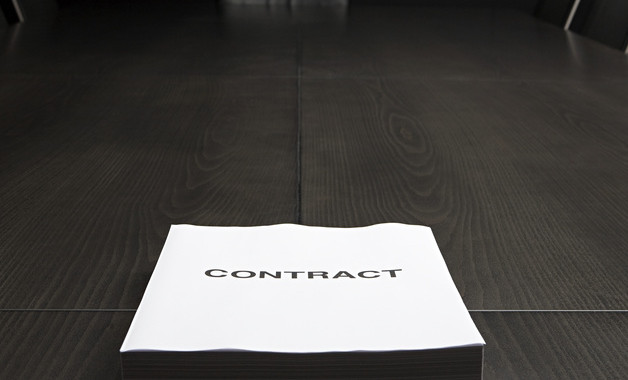
第1篇 马云美国哥伦比亚大学商学院英语演讲稿
alibaba makes internet magic
topics:
entrepreneurship
leadership
media and technology
world business
print this story e-mail this story
bookmark and share
you may not have heard of the alibaba group, but investors, competitors and business leadersaround the world are paying close attention. formed 11 years ago by high school teacher jackma, alibaba.com is china's largest b2b internet marketplace for small- and medium-sizedcompanies. other holdings include alipay, an online payment service similar to paypal; alibabacloud computing; and taobao, a social networking and shopping site that mr. ma describes asa mash-up of amazon, ebay . but it's the flagship company, alibaba.com, thathas been the incubator for his sometimes-unorthodox ideas on management and productdevelopment.
"we don't think about making money," mr. ma said in september during the sir gordon wudistinguished speakers forum at columbia business school, sponsored by the chazen institutefor international business. "we think about creating value for society, for the people, and forthe customer. and because we don't think about making money, we make money."
that might sound flippant coming from someone whose website raised $1.5 billion in 2019,making it the second largest internet ipo in history (only google's, at $1.67 billion, was larger).today, market capitalization for alibaba.com is nearly $10 billion, and taobao has mushroomedinto china's largest retailer by some measures. that's all the more remarkable consideringthat mr. ma operates in a country with some of the most restrictive internet censorshippolicies in the world. still, he has succeeded by adhering to one simple six-word tenet:customers first, employees second, shareholders third.
the early days
dressed casually in canvas shoes and a white windbreaker, mr. ma recounted for the audiencehis childhood in hangzhou, a major city in china's yangtze river delta. he was, he said, a fanof wu xia (martial arts) novels, and often got into fistfights as a young boy. he picked upenglish on his own by acting as a tour guide for foreign visitors in exchange for languagelessons, but because he had difficulty with math, he twice failed his general college entranceexams. on the third try, he was admitted to the languages program at the local university,after which he began a career teaching high school english.
but along the way, the entrepreneurial bug bit. he launched a translation service and washired by an american businessman, who was bankrolling construction of a local highway, totranslate negotiations with chinese municipal authorities. part of the deal-making called for himto travel to las vegas to meet some investors, and it was there, in 1995, that he first heard theword "internet." he then travelled on his own to seattle to visit vpn, a small internet serviceprovider with five employees. there he got his first look at the technology that would, within adecade, make him one of the most influential entrepreneurs in the world.
fee or free?
a key to his success, mr. ma said, was having a business model so simple that any customercould instantly understand it. unlike ebay, which has a sliding scale of fees, plus commissionif the item sells, alibaba.com charges nothing for up to 50 product listings. "chinese smes[small and medium enterprises] want to sell their products abroad," he said. "we help themcreate revenue." but what about alibaba's revenue? that comes largely from annualmembership fees that sellers pay to upgrade to "gold supplier" status, which gives themaccess to more buyers and an online storefront.
"a membership fee is something all smes understand," he said. "if you talk about transaction[charges], our p/e [price to earnings ratio] would go up, but customers wouldn't understandus. our business model should be simple and easy enough for customers to understand."taobao, meanwhile, has also steadfastly adhered to the "no transaction fee" philosophy, whichcaused it to leak money for several years. recently, though, it began selling ad space on thesite. revenues have been high enough to push taobao into the black, mr. ma said.
for the first five years of alibaba.com, mr. ma was the site's chief quality control officer. everyfeature of the site was put to one test: if he couldn't figure out how to use on his own, withoutexplanations or manuals, it didn't get implemented. "i'm not a high-tech guy," he said. "mywife bought me an ipad and i still don't know how to use it." the site's design is deliberatelyno-frills: clicking on the "categories" tab, for example, pulls up an easy-to-scan alphabeticallist of items for sale, everything from fresh garlic to pipe fittings. new requests from buyers areprominently displayed and constantly updated. and for buyers who cringe at the thought ofracking up a phone bill, there's a list of chinese suppliers with toll-free numbers.
what's ahead for the alibaba group? don't expect a foray into online gaming any time soon. "idon't believe in online gaming," he said, noting that his son and his friends spend hours afterschool glued to a computer screen. "we could make a lot of money on gaming, but i just don'twant my kids to be focused online," he said. instead, he said, the next big thing in china will beb2c commerce.
“the world is changing,” he said. “with so many consumers, they can say ‘i want my productstailor-made.’ this will fundamentally change the internet.”
第2篇 查尔斯王子在伦敦商学院英语演讲稿
ladies and gentlemen, i am fully aware that you have been locked in here since 9.30 or something and i suspect that you have been talked to furiously all that time. the last thing you want is another lecture when most of you are probably used to giving lectures rather than having to listen to them.
but if i may say so, i am so delighted to see so many leading figures from the business schoolcommunity here today and also to hear you briefly discuss such an important topic. needlessto say, i really am immensely grateful to all of you for taking the time to join this meeting –even if at the end of the day, it is only out of curiosity!
in particular, i would like to thank sir andrew likierman, who was involved in my accountingfor sustainability project at its inception, and of course, the london business school for kindlyhosting us all, particularly in its anniversary year. and i also wanted to say ‘many happy returnsof the day'.
i understand that 50 years ago, the london business school was established based on thenotion that management needed to be professionalized in the same way as law andaccountancy, in order to improve britain's economic performance. and with over 150,000students passing through its doors since then, it is clear that the london business school andother business schools have played an important role in shaping global economic success.
anniversaries are a time not just to look back, but also, perhaps to look ahead and considerwhat the future may bring. it is therefore perhaps fitting that we are here in lbs's 50thanniversary year as we look ahead towards what the next 50 years will bring, and the kind ofknowledge, understanding and skills that leaders are likely to need in order to anticipate andrespond effectively to the challenges ahead.
in 50 years' time, our children and grandchildren will be facing a radically different world. thewarning signs are already here for all to see. whilst we live in a time of great wealth andopportunity for many, it is also a time dogged by increasing turbulence and a ratherterrifying combination of risks – persistent poverty and a population of seven billion that isstill rising unsustainably fast; the depletion and over-consumption of finite natural resources;and the very real and accumulating risk of catastrophic climate change.
the recent 2019 report from the intergovernmental panel on climate change makes clear thatthe ‘severe' – as they put it – ‘pervasive and irreversible consequences' of climate change, ifleft unchecked, could be beyond our capacity to rectify. those consequences include more ofwhat we are already seeing in the form of extreme weather events that damage ourinfrastructure and disruptive weather patterns that undermine our ability to feed a growingpopulation.
now, ladies and gentlemen, i know only too well that there are siren voices on all sides tellingus that this is all total rubbish, dreamt up by half-baked environmentalists bent on destroyingcapitalism as we know it, but it must surely be the case that, in the future, successfulorganizations will actually be those which, according to best risk-management practice, haveredefined their business models to try and adapt to this very different world. it seems clear tome that those who find ways to use natural resources in a sustainable, and “circular” way, withnothing going to waste, will find themselves uncovering new sources of innovation, reducingtheir risks and increasing their competitive advantage. even more, success will be defined bythose who have shown real leadership in helping us to change trajectory and avoid the worstoutcomes that, at present, seem so likely.
and funnily enough, thinking about the circular economy, i was looking at just one or twoexamples from companies that have started to move in this direction. one of which is royaldutch state mines, and i met the ceo a few of years ago called feike sijbesma, a remarkableman, that i think polly introduced me to. and it is an intriguing example that he wascourageous and robust enough to move his company out of a profitable fossil fuel basedpetrochemical business into biotechnology and life science and animal nutrition products.
but to do all this, the company had to escape from the conventional straitjacket of short-termism and close the door on those investors who refused at the time, to take the long termview. and now, at the end of the day, royal dsm is delivering some of the highest yields thecompany has ever seen to those investors prepared to look towards the long term.
and one other brief example is phillips, for instance, it is very interesting what they are doingnow with their lighting systems, you know probably better than i.
phillips says they can reach more customers if they retain ownership of the lightingequipment as customers don't have to pay high upfront costs and phillips ensures the soundenvironmental management of end-of-life lighting equipment. so basically, it is a new way forcustomers to achieve their sustainability goals: high lighting performance, high energyefficiency, and a low materials footprint.
over the three years leading up to 2019, phillips' growth in products with a strong sustainabilityfocus was 8.7 times faster than the average growth of the company. just two examples, alwaysa good thing to give examples, i think.
but ladies and gentlemen, after the financial crash in 2019 there were many to be heardsaying it was increasingly clear that business as usual was simply not an option. however, oldhabits tend to die very hard and now we need to innovate like never before, and to acceleratethe pace of learning and change if we are to have a chance of a future we might want. buttoday's financial system does not actively reward long-term thinking, as we have been hearing,nor does it recognize the dependency of our economic success on the health and stability ofour communities and of the natural environment, all too often regarded as an irrelevantdistraction.
now, i suspect it is only too obvious that i am not any sort of financial or business expert, butit occurred to me some 15 years ago that many of the traditional tools and techniques forfinance and accounting – particularly for sustainability – that word which is much used – wereno longer fit for purpose. and this leads to sub-optimal decision-making by companies,governments and investors. that is why, after an initial conversation with the thencomptroller and auditor-general of the national audit office, i set up my accounting forsustainability project over ten years ago, with its cfo and accounting bodies leadershipnetworks, and why, ladies and gentlemen, through the cambridge institute for sustainabilityleadership, i launched climatewise for the insurance sector, the banking environmentinitiative and the investment leaders group – all designed to work with the research, financeand accounting community to support a fundamental shift towards business models thatdrive a sustainable economy.
i know that for many finance professionals, “sustainability” is a term that immediately suggeststhe kinds of measures that frustrate robust decision-making and the maximization of profits.far too often, sustainability is seen as a “nice-to-have”, with no requirement for a seat at theboardroom table. this really is i would have thought, a very short-sighted and outdated view!more and more leading businesses are recognizing that addressing environmental and socialissues systematically is not only necessary, but delivers improved commercial returns. thebottom line is that sustainable business equals good business. many of the companies that myinitiatives work with – for instance, organizations such as unilever, adidas, royal dsm and thecrown estate – are proving this everyday with projects that deliver strong commercial andsustainability returns, and with innovative tools and techniques used for decision-making,from capital expenditure appraisals to managing risk. and investors who are integratingenvironmental, social and governance issues into their decision-making are starting to seesimilar results. indeed, a literature review commissioned by cambridge's investment leadersgroup found a number of studies that deliver robust, causal evidence in favour of the case forresponsible investment. it found that environmental and social factors appear to add value notjust through lower firm-level risk, but also through lower cost of capital.
for what it is worth, i have long been convinced that business schools have a fundamentallyimportant role to play in all of this, both through their research and their teaching, which is whyi am so glad you are all here today. you, ladies and gentlemen, are ideally placed to challengeestablished precepts and provide new thinking that will help organizations to improve theirmanagement of, and accounting for, social and environmental issues. but, above all, no one isbetter placed to translate that thinking into the education you offer to the next generation ofbusiness leaders, equipping them with the understanding and skills they need for thisuncertain future.
this is why, back in 2019, we arranged a gathering for deans from leading business schools,together with some of the leading companies of the day, to explore just how much help thecompanies felt they were getting, and how well mba programmes were addressing some ofthese complex sustainability issues. well, i'm afraid we didn't get very far, as polly courticewill confirm! frankly, it was all a bit embarrassing. the business schools said they were doing anexcellent job, all things considered, but the companies disagreed. so we reached something of astalemate at the end of the day! fortunately, even then, there were some notable exceptionsto the rule in the business school community, and my own business & sustainabilityprogramme, which i established at cambridge 21 years ago, has been on hand to give nearly4,000 business leaders an intensive guide on how to find a convergence between profitabilityand sustainability.
but ladies and gentlemen, it is your bad luck that jessica fries and polly have encouraged meto try again! so i was relieved to hear from you this afternoon that there has been at leastsome progress since then, often in the face of some quite formidable challenges! it is clearthat new and important research is emerging from many quarters, including that relatingdirectly to finance and accounting. and it is good to hear that the mba programme hasdeveloped considerably to meet the widening demands and requirements of future businessleaders. a growing number of business schools are offering specialist modules on sustainabilityissues, although i gather these are more often than not offered as optional electives or areincluded as part of ethics teaching. elsewhere there has been progress too. the work that a4shas conducted with the professional accounting bodies to integrate sustainability into theaccounting syllabus, and the work that the cfa institute has started to do in relation tofinancial analysis, shows that real progress is possible.
but, ladies and gentlemen, is all this enough? and why on earth is it taking so long to get themessage through? as business schools, are you truly tapping into the brilliant intellects at yourdisposal, and developing the innovation, creativity and breadth of understanding that yourmba students will need in order to be to be effective leaders in an already dangerous anduncertain world? is the notion of environmental limits and the enhancement of communitycapital a recurring theme in your finance and accounting, marketing, corporate strategy andmanufacturing modules? how often, for instance, do key words such as population, poverty,climate change, ecosystems and biodiversity, human rights, africa, mega-cities, and theempowerment of women appear in your lectures or academic publications? are your young,untenured academics promoted and rewarded for doing work that relates to sustainability,ethics or society? in short, are your business schools really in touch with the issues that willincreasingly have an impact on the future viability of businesses, or should wise and forward-thinking companies be looking elsewhere to develop their executives for the future?
ladies and gentlemen, your business schools are rooted in both academia and industry and ibelieve you have a very special role to play. society needs to be able to look to you withconfidence for some of the best thinking and the most enlightened education, to secure thefuture for our children and our children's children.
so, if i may just add this in at the end, my challenge to all of you is to build on what you aredoing already and find ever better ways to integrate sustainability into every aspect of yourresearch and teaching. of course, i understand the attraction of tried and tested methods, butimproving on ‘business as usual' with conventional case studies and metrics is absolutely notgoing to be sufficient! so i hope, hope you will have the courage to step out of the comfortzone of the current paradigm and ask the really difficult questions about what it will take tosucceed in business in the next 50 years.
why not think about how you might lead the way? could you for instance, move ahead of thepack with courage and vision, radically transforming your curriculum and conducting new andinteresting research in this field, despite all the countervailing pressures that reinforcebusiness as usual? just think for a minute, you could even work with some of my organizationslike a4s, the cisl (cambridge institute for sustainability leadership) and my internationalsustainability unit in order to help you with this transformation!
we do it already with lots of businesses anyway, and the capital markets, to try and addressthe points you were making if i may say so.
and finally, ladies and gentlemen, to all current business school students – and to those whoare deciding where to study – ask yourself, is your chosen business school really at the end ofthe day, going to equip you to be the kind of leader that i suggest is so badly needed for thenext 50 years? because nothing less will do.









